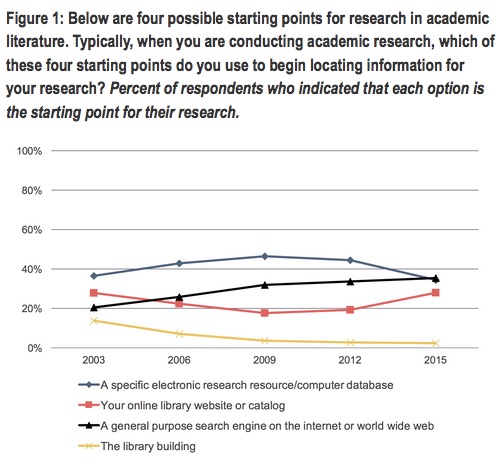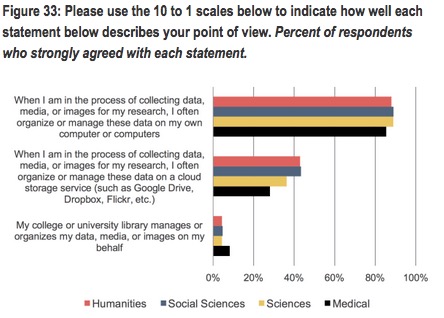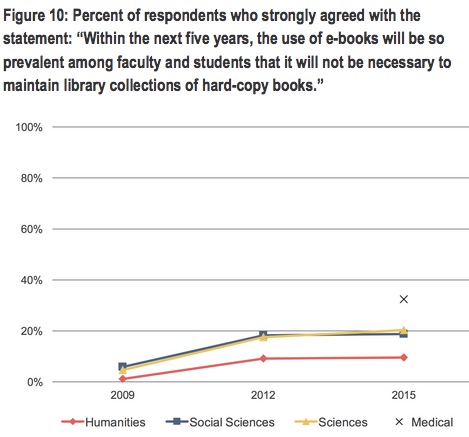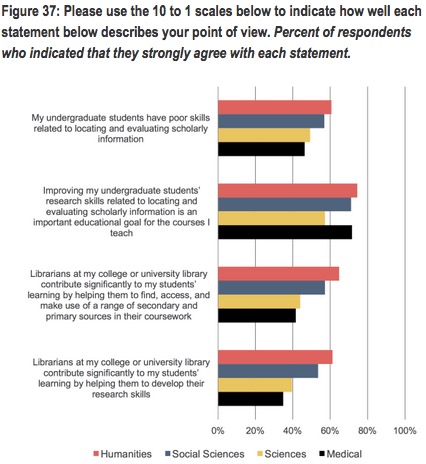Libraries, Publishing, Research: Ithaka S+R Releases 2015 US Faculty Survey Findings
From a Blog Post by Roger Schonfeld (Co-Author Report):
We have been running this survey on a triennial basis since 2000 to examine the attitudes and behaviors of scholars at four-year colleges and universities across the United States. The survey provides the higher education community with a regularly updated snapshot of its faculty members at a moment in time, as well as trend analysis of changes.
Notes
1. For the first time medical faculty were surveyed for this report.
2. New coverage on data management and preservation.
Quick Comment (from infoDOCKET, Founder/Editor Gary Price)
Aren’t library resources and librarians available for faculty use? How can someone utilize/share/take advantage of something they might not know about or haven’t been updated on?
It would be useful if the next edition of this report included some specific questions/answers about how well a library is marketing/promoting itself and its staff to faculty members were included. Are they getting the message(s)? What can libraries do better to inform them?
Direct to Full Text Report ||| PDF Version (83 pages)
Key Findings From the Report
- Discovery starting points remain in flux. After faculty members expressed strongly preferring starting their research with a specific electronic research resource/database as compared to other starting points in previous cycles of this survey, they are now reporting being equally as likely to begin with a general purpose search engine as they are with a specific electronic research resource/database. Furthermore, the online library website/catalog has become increasingly important for conducting research since the previous cycle of the survey.
- Interest in supporting students and their competencies and learning outcomes shows signs of surging. Since the previous cycle of the survey, there has been an increase in the share of faculty members who believe that their undergraduate students have poor research skills and a substantial increase in the perceived importance of the role of the library in helping undergraduate students develop research, critical analysis, and information literacy skills.
- Faculty members prefer to be self-reliant in their data management and preservation processes. Faculty members tend to favor tools that allow them to manage or preserve their data on their own as opposed to support from other entities within and outside of their college or university. Nearly 90% of respondents organize these data on their own computer.
- There is no observable trend towards a format transition for monographs. Faculty members’ preference for using scholarly monographs in various ways in print format rather than digital format has, if anything, increased since the previous cycle of the survey.
- Traditional scholarly incentives continue to motivate behaviors around research and its dissemination. Respondents generally believe that more recognition should be awarded for traditional research publications, such as journal articles and books, as compared to research products, such as data, images, media, and blog posts. And respondents performing research are most interested in reaching scholars in their specific subdiscipline or field of research and most frequently share their findings in peer-reviewed journals and published conference proceedings, consistent with findings with the previous cycle of the survey.
A Few (of Many) Charts That We Also Found Interesting
Note: The complete report includes 47 charts
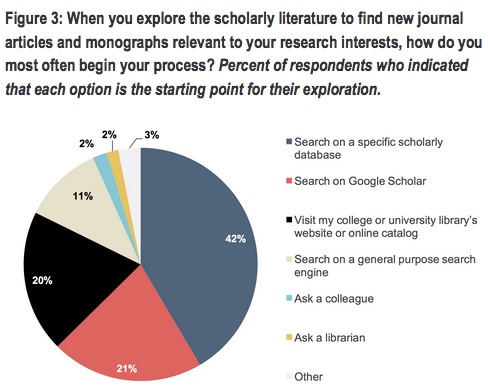
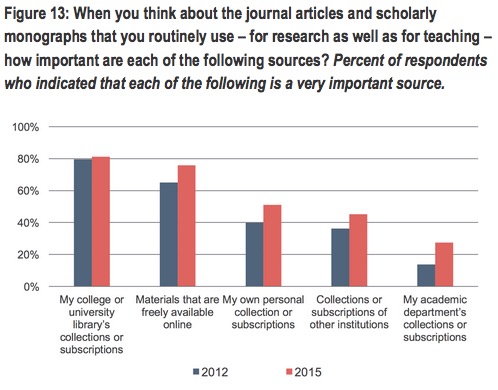
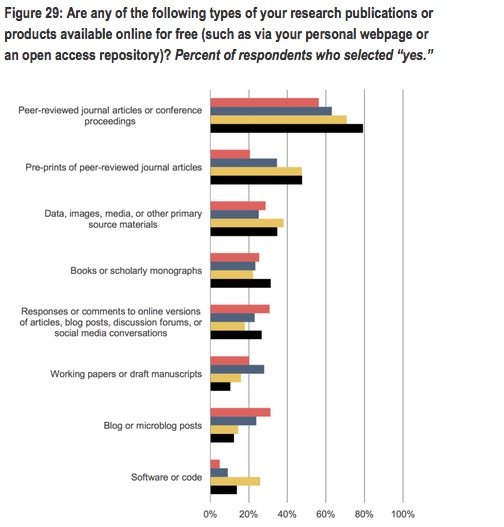
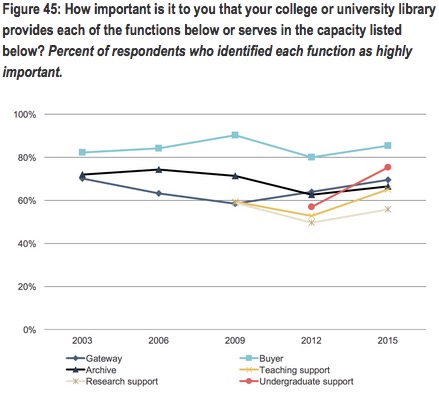 Direct to Full Text Report ||| PDF Version (83 pages)
Direct to Full Text Report ||| PDF Version (83 pages)
See Also: Post by Roger Schonfeld on The Scholarly Kitchen, “Will the Monograph Experience a Transition to E-Only? Latest Findings.”
Filed under: Conference Presentations, Data Files, Journal Articles, Libraries, Management and Leadership, News, Preservation, Publishing
About Gary Price
Gary Price (gprice@gmail.com) is a librarian, writer, consultant, and frequent conference speaker based in the Washington D.C. metro area. He earned his MLIS degree from Wayne State University in Detroit. Price has won several awards including the SLA Innovations in Technology Award and Alumnus of the Year from the Wayne St. University Library and Information Science Program. From 2006-2009 he was Director of Online Information Services at Ask.com.


